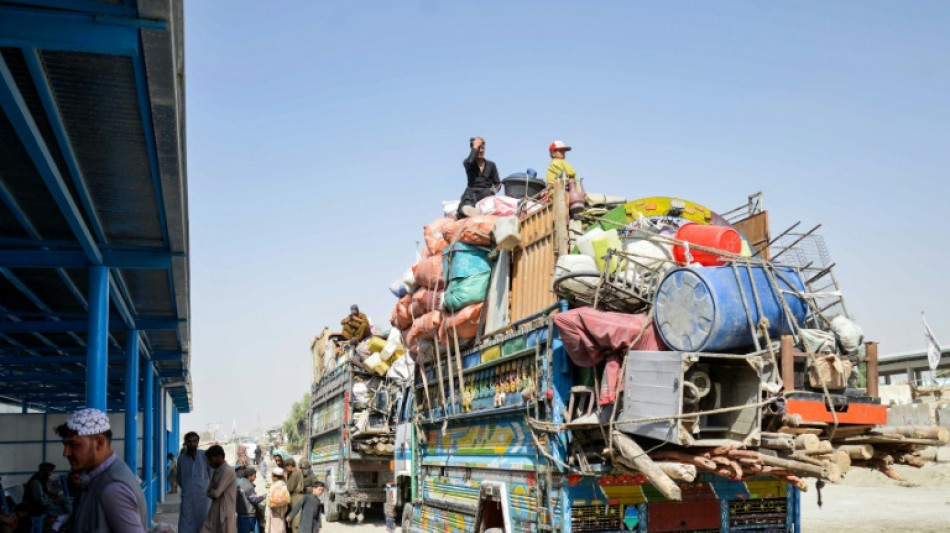
'People can breathe': hope for peace on Afghan-Pakistan border

After a week of violence, residents on the frontier between Afghanistan and Pakistan are hoping a new ceasefire deal will end the clashes and revive crucial cross-border trade.
While the crossings remain closed, life has regained a semblance of normality, with bakers kneading bread, fruit and vegetable sellers wheeling out their carts, and customers frequenting shops.
"People can breathe and feel relieved. (But) before that, gunfire damaged a few houses in our village," said Sadiq Shah, 56, a shopkeeper from Baizai on the Pakistani side.
Fighting between Afghanistan and Pakistan broke out after explosions in Kabul on October 9.
The Taliban government blamed the blasts on its neighbour and launched a retaliatory border offensive, prompting Islamabad to vow a strong response.
After further clashes left soldiers and civilians dead, the two sides declared an initial 48-hour ceasefire on Wednesday.
New Pakistani strikes hit Afghanistan on Friday, with Islamabad saying it was targeting armed groups that the Taliban harbours and allows to launch attacks on Pakistani territory -- a claim that Kabul denies.
The two sides approved a second ceasefire on Sunday, to the relief of many along the border.
"It's incredible: both sides are Muslim, (ethnic) Pashtuns, so why fight?" said Shah.
"Previously, trade with Afghanistan went through here, and now we're shooting at each other. What country does that?"
- 'Losing money' -
The border only opened temporarily this week to admit Afghan migrants expelled by Pakistan under a campaign that it launched back in 2023.
In the Pakistani town of Torkham, a normally busy crossing point into the Afghan province of Nangarhar, stranded drivers bought tea from a vendor as they waited in colourful trucks.
More than 1,500 trucks, trailers and containers carrying cement, medicines, rice and other basic goods are waiting in Torkham, according to a senior Pakistani customs official in nearby Peshawar.
Abdul Rahman Habib, spokesman for the Taliban's economy ministry, said fruit and vegetables were rotting as they awaited export to Pakistan.
"Businessmen are losing money," he said, without giving an estimate of the damages.
Habib warned that if this situation persisted, "it could increase prices and unemployment, and destabilise markets".
"Trade relations should be separate from political issues," he told AFP.
After the peace talks in Doha, Qatar's foreign ministry said the ceasefire deal provides for "the establishment of mechanisms to consolidate lasting peace", but their details have not been disclosed.
Niaz Mohammed Akhund, a 39-year-old car salesman in Spin Boldak, an Afghan town where fighting flared last week, said "people here are very happy with the ceasefire".
"(They) have no farmland or other source of income -- everyone depends on cross-border trade, on both sides," he said.
Nematullah, a 24-year-old vendor, also told AFP he hoped "this problem won't resurface".
Across the road on the Pakistani side, market worker Imran Khan called on the two countries to establish a "mechanism to end these conflicts and to start treating each other like brothers".
E.Yeon--SG

 London
London

 Manchester
Manchester
 Glasgow
Glasgow
 Dublin
Dublin
 Belfast
Belfast
 Washington
Washington
 Denver
Denver
 Atlanta
Atlanta
 Dallas
Dallas
 Houston Texas
Houston Texas
 New Orleans
New Orleans
 El Paso
El Paso
 Phoenix
Phoenix
 Los Angeles
Los Angeles



